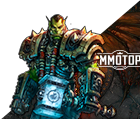Game ads attract more players through a strategic combination of visibility, engagement, and targeted messaging. Here's a breakdown of how they achieve this:

Increased Visibility and Reach:
- Broad Audience Exposure: Game ads are placed on various platforms (app stores, social media, websites, other games), reaching a vast and diverse audience.
- Targeted Placement: Ad networks allow for precise targeting based on demographics, interests, and behaviors, ensuring ads reach potential players who are most likely to be interested in the game.
- Cross-Promotion: Game ads within other games expose the advertised game to a highly relevant audience – existing gamers.
Engaging and Compelling Creatives:
- Visual Appeal: High-quality graphics, animations, and videos showcase the game's aesthetics and create a strong first impression.
- Gameplay Demonstrations: Ads often feature gameplay footage, giving potential players a glimpse of the game's mechanics and excitement.
- Storytelling and Immersion: Effective ads use storytelling techniques to create a sense of intrigue and draw players into the game's world.
- Playable Ads: interactive ads allow users to try a small portion of the game before downloading. This is a very effective way to engage players.
Enticing Offers and Calls to Action:
- Free-to-Play Incentives: Highlighting the game's free-to-play nature and offering in-game bonuses or rewards encourages players to try it out.
- Clear Calls to Action: Strong calls to action, such as "Download Now," "Play for Free," or "Join the Adventure," prompt players to take immediate action.
- Promotional Events and Limited-Time Offers: Creating a sense of urgency with limited time offers increases downloads.
Social Proof and Community Building:
- Showcasing Positive Reviews and Ratings: Highlighting positive reviews and high ratings builds trust and encourages players to try the game.
- Building a Community: Ads that promote social aspects of the game, like multiplayer modes or community events, can attract players looking for social interaction.
- Influencer Marketing: Seeing trusted online personalities playing a game will encourage their followers to try it.
Data-Driven Optimization:
- A/B Testing: Developers and marketers use A/B testing to determine which ad creatives, messaging, and targeting strategies are most effective.
- Performance Tracking: Analytics tools track ad performance, allowing for continuous optimization and improvement.
By using these methods, game advertisements increase visibility, create interest, and encourage downloads, ultimately leading to a larger player base.

















